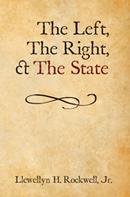The entire presumption of the Obama-proposed Consumer Financial Protection Agency is that banks and mortgage companies are under-regulated by the state. This is why the financial meltdown took place — never mind that the federal regulatory Gosplan includes tens of thousands of pages purporting to regulate the mortgage industry alone.
Let’s leave aside the unknown costs that will be associated with new regulations — ever more hoops to jump through, more paperwork, more confusing terms for lenders and borrowers alike, more government controls that harm consumers as much as or more than producers. The core problem here is that none of this rigmarole has anything to do with the real reason for the meltdown.
The role that legislation plays in sending signals to real-world market participants is tiny by comparison to the role of market prices, among which are the interest rate. Here is the signal that is organic to the market economy, generated by the choices and values of all the people in society.
Prices are the market’s intrinsic method for allocating resources according to the priorities of individuals. These prices include the exchange ratios for final products and prices all up and down the structure of production. They also include wages, the market signal that regulates relations between workers and employers.
 But for the investment sector, the critical price signal is the interest rate. It is this which rewards and punishes investment decisions. It conveys information about the capacity of consumers to purchase in the future. A high interest rate indicates a lack of saving and a shift toward more present-oriented economic decisions. Conversely, a low interest rate tells lenders and borrowers that there is plenty of spare saving to go around.
But for the investment sector, the critical price signal is the interest rate. It is this which rewards and punishes investment decisions. It conveys information about the capacity of consumers to purchase in the future. A high interest rate indicates a lack of saving and a shift toward more present-oriented economic decisions. Conversely, a low interest rate tells lenders and borrowers that there is plenty of spare saving to go around.
In the early 2000s, the Federal Reserve manipulated the interest rate in a downward direction, one which was not justified by market realities. This action misled consumers and producers to undertake investments that were unsustainable. In particular, financial energy poured into the housing market, a sector which had been a political priority for successive presidential administrations.
To understand the implications, imagine if a fine restaurant advertised a five-course meal and French wine for all comers, at $1 each. Would the customers be exuberant? You bet. They would be wild with anticipation, choosing to stand in a line and hang out at the restaurant rather than do other things with their time.
The restaurant would be packed and happy, though of course it couldn’t sustain this in the long run, but the fun is great while it lasts. At some point, reality kicks in. The manager notes that there are no more tables and maybe no more food. The employees are exhausted. Moreover, the balance sheets don’t line up: they are losing money on every meal they serve. At some point, the manager is going to have to announce the bad news and everyone is going to have to go home.
This is roughly what happened with the current boom and bust. Policy makers, however, seem to be under the assumption that they can keep the boom going on forever simply by dropping the interest rate ever lower. This is something like a restaurant owner thinking that he can continue to have people wait in line even though he has no tables or food or servers remaining. It is a physical and economic impossibility for him to make good on his promises.
At some point in this process, people begin to drift away and go on to other things. The manager can continue to advertise $1 meals in the hope of stimulating his business but this is simply illusion. No one is buying it; even if they did, the restaurant can’t make the balance sheets work out. We can venture a prediction here that this restaurant will not be stimulated. It will enter into a prolonged period of inactivity until nothing is left.
This is precisely what the Obama administration is attempting to do. So you can see that regulations in this climate mean absolutely nothing. You can pass a regulation that says: “All customers must continue to wait in line” or that “all meals that have been promised must be delivered” or that “restaurants must keep stores of food and wine on hand for high-traffic days” but none of them really apply because the core problem has deeper roots. The regulations are even destructive, because they end up applying to everyone alike, the good restaurants that are telling the truth and the bad ones that continue to mislead people.
Even the establishment of a Restaurant Customer Protection Agency is not going to fix up this situation, which is already hopeless. Creating an agency like this only ends up mucking up a system that is otherwise self-correcting.
The Bush administration began the ridiculous economic boom as a way of preventing a recession that was underway already at the time of the 2001 terrorist attacks. Creating funny money via low interest rates was the Bush way of fighting back against the terrorists. Very stupid, because look where it got us. We have experienced the worst financial panic on record, which has devastated us economically far more than the terror attacks.
This is why Obama’s fix-it plans are based on a denial of reality. The downturn might eventually end, but with ever more regulations imposed on the system, we might find ourselves never again living in a vibrant and prosperous society.





